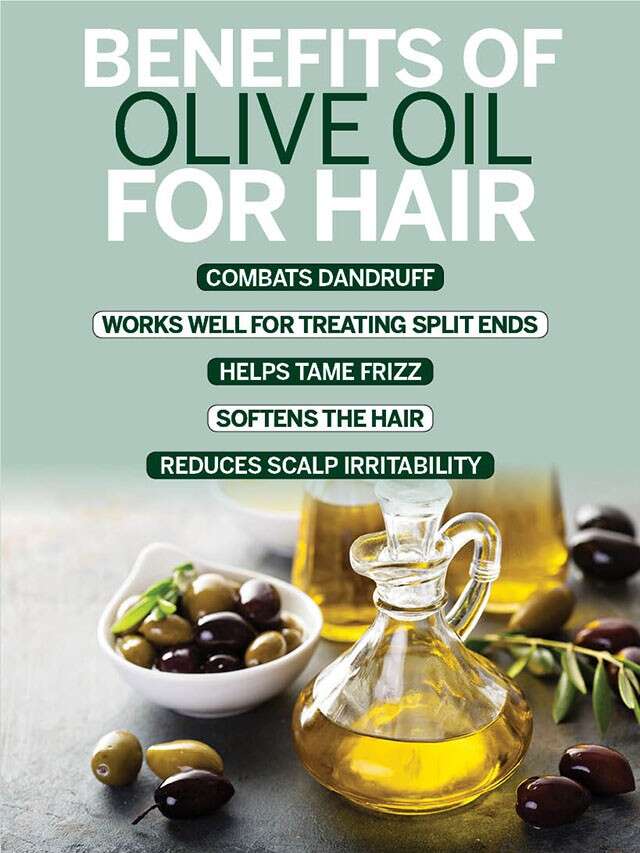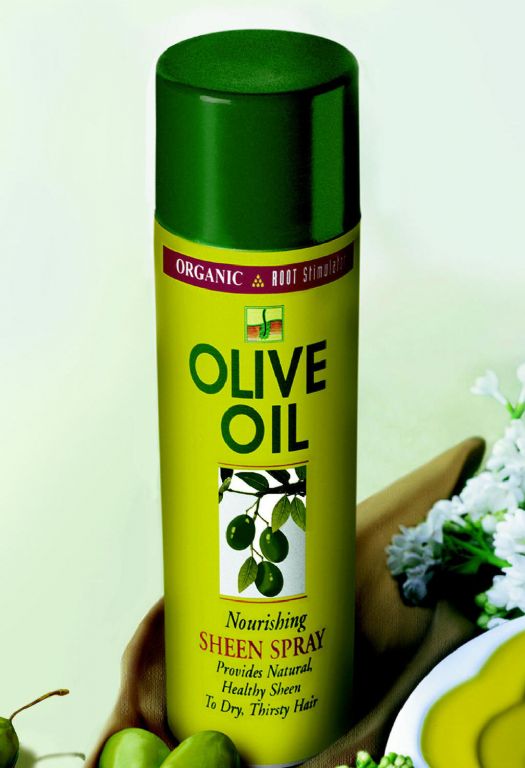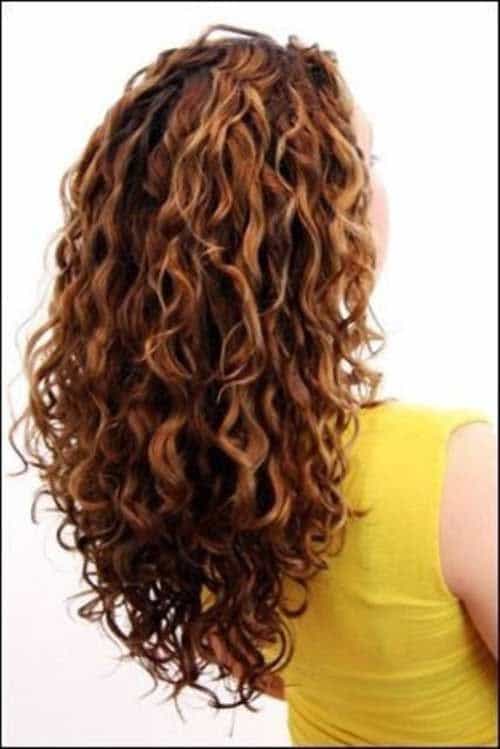Table Of Content

Rosemary essential oil — Adding an essential oil for hair like rosemary can stimulate the hair follicles to spark new hair growth. A lot of us rely on heat styling tools to do our hair, and on top of that, we might color and bleach our hair, too. Doing these enough times means that the hair shaft breaks and loses moisture, luster, and shine [source].
Olive Oil for Hair: What You Need to Know, According to Experts
“Malassezia, the bacteria that causes dandruff, feeds on the oils secreted by your scalp," she says. "Adding more oil to your scalp increases the chance of an inflammatory response.” Um, no thanks! If you’ve been searching for a tried-and-true ritual to achieve longer, luscious hair, may we suggest hair oiling? TBH, it's basically the oldest trick in the book—as far as my ancestors are concerned. My family is from Pakistan, so I’ve grown up with the ritual of hair oiling, an Ayurvedic practice involving applying oil directly to your scalp and hair, massaging it in, and allowing it to sit for an extended period. She explains that oils have fatty acids that help replace lipids in the hair. These are lost due to chemical treatments, styling, or even pollution.
16 best hair oils of 2024, according to experts and shoppers - TODAY
16 best hair oils of 2024, according to experts and shoppers.
Posted: Fri, 23 Feb 2024 08:00:00 GMT [source]
Hair Oiling
Olive oil may work to promote healthy hair growth, but the science isn’t there yet to confirm that it will work for sure. Applying an olive oil mask once a week or even twice a month could be enough to see stronger hair. As far as the hair growth potential of this treatment, your mileage may vary. So while we may not have concrete evidence that olive oil promotes hair growth, we know that it has protective and nutritional qualities that might make your hair look and feel healthier. There’s even some evidence to suggest that olive oil can soothe your scalp, strengthen your hair follicle, and potentially stimulate hair growth.
Lock in moisture
The belief that olive oil is good for hair comes from its components, particularly oleic and stearic acids. These fatty acids not only offer health benefits when consumed but may also offer cosmetic benefits to your hair when applied topically. This olive oil treatment doubles as a hair growth oil, and can be (sparingly!) applied to the scalp without resulting in greasiness or weighted down curls. Dr. Garshick adds that if you have thin hair and remain intent on trying olive oil haircare, "it is best to apply to the ends to avoid weighing the hair down." In a 2015 study on mice, researchers found that applying olive-tree derived ingredients stimulated hair growth. However, this study certainly doesn’t tell us everything we need to know about olive oil and hair growth.
If you’ve never experimented with olive oil as a hair product before, use just a tablespoon or two for your first treatment. While Dr. Kunin says olive oil doesn't have any known risks for hair, a patch test is always recommended before trying any new product. “Castor oil is rich in ricinoleic acid, which has anti-inflammatory properties and nourishes the scalp,” says Jhin. One of my favorite oils, this one has a nozzle tip to easily drip it directly onto my scalp before massaging. It uses basil leaf and baobab oils to help break down oils and gunk on my scalp, as well as balance my scalp microbiome.

Olive Oil for Hair: How to Use It, According to Experts
Good Housekeeping participates in various affiliate marketing programs, which means we may get paid commissions on editorially chosen products purchased through our links to retailer sites. He trained under top hairstylists Italo Gregorio and Serge Normant, and has since accumulated an impressive portfolio of celebrity clients. They include Olivia Culpo, Katharine McPhee Foster, and Alessandra Ambrosio. Our experts continually monitor the health and wellness space, and we update our articles when new information becomes available.
Increasing local circulation is key to healthy hair growth—it ensures that every single hair is healthy and strong, starting at the root. A scalp massage may also stimulate new hair growth, resulting in thicker, fuller hair over time. This warm hair oil treatment is easy and effective at treating damaged and dry hair. The recipe below can be modified down to ONE simple ingredient—olive oil. Read on to learn how to use this excellent moisturizer to deep condition your hair.
Iman Balagam is a beauty contributor at Cosmopolitan with nearly four years of experience writing beauty stories that range from curling irons to collagen for hair growth. She’s an authority in all categories, but is an expert when it comes to hair oiling, thanks to years of personally researching and testing different hair oils to grow her thick hair. Tea tree is a popular astringent that has many uses for hair and skin (it's often formulated into toners, acne treatments, shampoos, and more). You can totally make your own at home, using olive oil as the base.
So why does everybody talk about olive oil like it's a magic elixir for growing really long hair? Dr. Obayan points to a study that showed that there is a component of olive oil called oleuropein that can directly impact the growth cycle, but that study was done on mice, and not, ya know, people. And even then, that doesn't account for how much olive oil, or how frequently you'd need to apply it for it to be effective. First, the OMG-you-have-to-try-it DIY was apple cider vinegar for your hair, and now, it's olive oil for your hair. I'm beginning to think that all the secrets to soft, healthy hair are hiding in my salad dressing—and, honestly, I'm not mad about it. For something I don't use all the time, hair masks can be unreasonably expensive, so I'm more than happy to make myself a DIY hair treatment at home...that is, as long as it actually works.
If you have a scalp condition, such as seborrheic dermatitis, scalp psoriasis, or scalp acne, it may be best to avoid oils for hair. Consult your dermatologist or doctor to decide the best scalp regimen for you. “There are certain kinds of fungus that feed on the presence of oils, which can lead to an increase in flaking and skin inflammation,” says Carillo. Also, if you have allergies to certain ingredients or oils, avoid those as well—and be sure to check the label, as hair oils are often a blend of multiple ingredients. There’s a lot of misinformation on the internet, hair oiling can help "protect your hair from damage, improve the look of split ends, and prevent breakage," she says.

Leave olive oil in your hair and cover with a shower cap for extra conditioning. “Almond oil is lightweight and easily absorbed by the hair, making it an excellent choice for moisturizing and softening dry, damaged hair,” Friend explains. There are no specific number of days you should be oiling your hair, says Dr. Spann, but for most people, once a week is sufficient.
Researchers think the gentle force of a scalp massage stretches hair follicle cells, which increases thickness. It’s also possible that increased blood circulation to the hair follicle could promote growth. Olive oil is generally best for those with thicker, textured, or more coarse hair types. Those with thin or fine hair may want to avoid using the oil or use it very sparingly as it can “weigh down the hair and give it a greasy appearance,” Dr. Garshick warns.
Although this particular study didn’t focus specifically on olive oil, the review did state that monounsaturated oils and saturated oils may penetrate the hair shaft more fully than polyunsaturated oils. But we don’t know if it would have the same effect for human hair growth. This hair type is actually more prone to breakage and frizz, because each hair strand is most vulnerable and weak at points where it curves. When it comes to your hair, not just any ol' version of olive oil will do. Go for extra-virgin (EVOO); it's the highest-quality olive oil you can buy. It's an unrefined oil — meaning it is not treated with chemicals or heat — and it has to meet very specific standards to receive the “extra-virgin” stamp.
Olive oil, especially EVOO, is an inexpensive way to improve the health and appearance of your hair. Just remember, a little bit often goes a long way (especially for straight, thin hair types), and you should never heat treat your hair directly following an olive oil application—unless you’ve washed it out first. However, gently massaging the scalp with olive oil (or another hair-friendly oil like jojoba oil or almond oil) may have positive effects on hair thickness.
The people most likely to benefit from hot oil treatments for hair are those with textured natural hair—specifically, those with coily, curly hair. This is because those hair types have a high porosity, which means they quickly absorb and lose water, often leaving them feeling dry and frizzy. And while they’re often a go-to for those with extremely damaged or dry hair, experts say that nearly all hair can benefit from using hair oils if appropriately applied. Because of hair oil’s low molecular weight, it’s one of the few types of formulas that can truly penetrate the hair shaft.
"There are hair conditioners and masks formulated with olive oil readily available," notes Dr. Mikailov. If your hair is coarse, dry, or damaged, an olive oil hair mask may work well for you. Other ingredients like egg, avocado, and honey may offer even more benefits. If your hair is dry and damaged, you can use an olive oil hair mask twice a week.

No comments:
Post a Comment